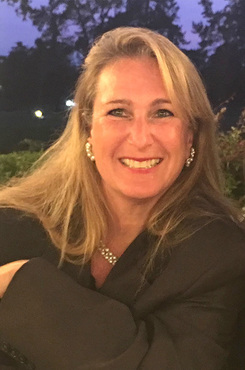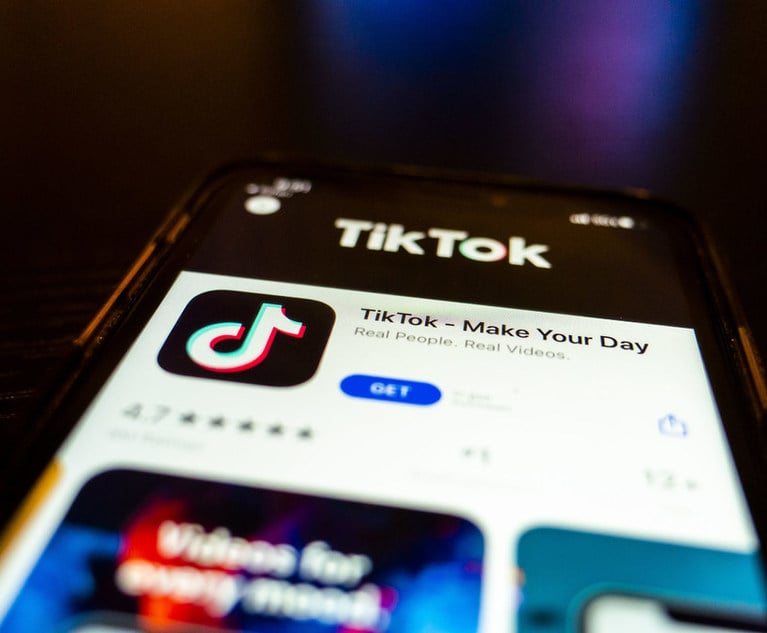Turning Up the Volume on Women's Voices in the Media
This is a perfect time for everyone to show support and urge women to take the microphone. The voices of men and women matter. Doing a better job at raising the female voice within the media and balance the playing field can provide significant benefits to readers who will be exposed to ideas and research from another perspective.
January 29, 2019 at 02:55 PM
5 minute read
 Elizabeth Lampert, ELPR
Elizabeth Lampert, ELPR
Women represent a little more than half the global population. There are a lot of clever women in this world, particularly in the legal industry, where in 2016, for the first time, the number of female enrollees surpassed male enrollees at U.S. law schools.
If the scales are slightly tilted toward women, then why is it that women are significantly underrepresented when it comes to quotes in the media where third-party sources are quoted to assist people in understanding complex issues?
Obviously, underrepresentation isn't a new problem. Journalists are aware of it given the attention it has been getting of late. To everyone's credit, over the past several years, many high-profile journalists have shown great insight and have thoughtfully examined, even criticized their own coverage. For example, The Atlantic's Ed Yong, a science reporter, spent two years trying to correct gender bias in his stories. Moreover, in another herculean effort, The New York Times's David Leonhardt found that he, too, was over-reliant on men as expert sources. Also making waves on this front in an effort to balance the scales, Bloomberg's New Voices initiative aimed at building a database of female newsmakers in business and finance that would build fairness and balance in coverage.
These kinds of examinations are admirable and necessary if moving the needle is the ultimate goal. They can be adapted by law firms and other businesses to help raise the voice of their female professionals.
I know many thoughtful journalists failing to quote or mention many women is not done on purpose. Everyone has a part to play in the missed opportunities and for the solutions going forward. This is a perfect time for everyone to show support and urge women to take the microphone. The voices of men and women matter. Doing a better job at raising the female voice within the media and balance the playing field can provide significant benefits to readers who will be exposed to ideas and research from another perspective.
Here are steps I suggest be taken that would make an immediate difference.
For female sources and PR professionals:
- Professionals without a marketing or public relations team can utilize the site, Help A Reporter (HARO), which is an excellent resource to pitch reporters your expert comments when the stories they are writing needs a women's voice. If you follow HARO's postings and respond promptly to relevant inquiries, you may wind up quoted. The key here is to reply to queries quickly.
- Law firms and business can create a public database on their website of women and other diverse lawyers who are experts on specific media topics. The list should include names and areas of expertise and an email and phone number to make contact. This list should highlight women across practice groups and can be updated and changed on a proactive basis to include a variety of people and a diverse set of choices.
- Law firms and businesses can create a variety of shareable databases that compile focus group contact information such as Women in Tech, and a list of women in biotech, sports, AI, etc.
- From an internal perspective, work with the younger associates and encourage them to be editorially vocal about issues that could potentially impact clients and future clients. Have them write and get published in legal and trade magazines.
- Take advantage of the opportunities op-ed columns provide. Opinion columns can be found on news media websites and in most traditional media/print publications. Also, be very selective as this is one of the most read sections of a publication.
- PR professionals internally and externally can become a resource for journalists and editors by creating and pitching gender diversity on topics such as net neutrality, artificial intelligence or gaming. Who gets quoted is ultimately up to the publication but providing more diverse points of view and sources increases the chances of getting quoted.
- Get Social. Identify media influencers on Twitter. Identify your top five journalists, follow them, comment where appropriate and retweet their messages. Search official Facebook pages for news organizations and identify individuals who write for the outlets. Do the organizations have fan pages? If so, “like” those pages and spend time commenting and contributing. LinkedIn in an incredible source. Utilize LinkedIn for organizations or people you would like to connect with.
- Have flare, be different. A good number of experts interviewed are not quoted in the final story because their answer is bland and no different than anyone else. Say something out of the box. Share some incredible stats, blurbs or predictions paired with why you agree or disagree.
- Watch for industry breaking news in the practice area you excel in and provide a comment immediately to the reporters that typically cover that subject. That includes U.S. Supreme Court decisions, court decisions on all levels, mergers and breaking news.
Getting quoted is a contact sport and requires time and effort. If we all make the effort, the media will begin to look more like the world we live in. Bold, diverse and full of different perspectives.
Elizabeth Lampert is the president of ELizabeth Lampert PR, an international law firm consultancy well tested in crisis communications and raising the voice of all lawyers within the media. She can be reached at [email protected]
This content has been archived. It is available through our partners, LexisNexis® and Bloomberg Law.
To view this content, please continue to their sites.
Not a Lexis Subscriber?
Subscribe Now
Not a Bloomberg Law Subscriber?
Subscribe Now
NOT FOR REPRINT
© 2025 ALM Global, LLC, All Rights Reserved. Request academic re-use from www.copyright.com. All other uses, submit a request to [email protected]. For more information visit Asset & Logo Licensing.
You Might Like
View All
Build It and They Will Come: Tips to Market Your Practice as a Junior Attorney
6 minute read
Yelp Sues Google for Alleged Antitrust Violations, Citing Previous 'Watershed' Government Ruling

There's Something in the Water: San Diego Is Once Again a Hot Market for National Law Firms
6 minute read
What Happens When You Go Viral? How a Law Firm Associate Manages Her Social Media Success
5 minute readTrending Stories
- 1iRobot Picks Up Law Firm Partner as New Legal Chief
- 2Baker McKenzie Spins Off AI-Powered Risk Management Tool SCOREalytics as Independent Business
- 3Edison Hit With Lawsuits Over Devastating Eaton Fire in Los Angeles
- 4Does Society’s Focus on Children’s Sexuality Make Them Vulnerable to Grooming?
- 5California Lawmakers Reach $50M Deal to Fund Legal Fights Against Trump
Who Got The Work
Michael G. Bongiorno, Andrew Scott Dulberg and Elizabeth E. Driscoll from Wilmer Cutler Pickering Hale and Dorr have stepped in to represent Symbotic Inc., an A.I.-enabled technology platform that focuses on increasing supply chain efficiency, and other defendants in a pending shareholder derivative lawsuit. The case, filed Oct. 2 in Massachusetts District Court by the Brown Law Firm on behalf of Stephen Austen, accuses certain officers and directors of misleading investors in regard to Symbotic's potential for margin growth by failing to disclose that the company was not equipped to timely deploy its systems or manage expenses through project delays. The case, assigned to U.S. District Judge Nathaniel M. Gorton, is 1:24-cv-12522, Austen v. Cohen et al.
Who Got The Work
Edmund Polubinski and Marie Killmond of Davis Polk & Wardwell have entered appearances for data platform software development company MongoDB and other defendants in a pending shareholder derivative lawsuit. The action, filed Oct. 7 in New York Southern District Court by the Brown Law Firm, accuses the company's directors and/or officers of falsely expressing confidence in the company’s restructuring of its sales incentive plan and downplaying the severity of decreases in its upfront commitments. The case is 1:24-cv-07594, Roy v. Ittycheria et al.
Who Got The Work
Amy O. Bruchs and Kurt F. Ellison of Michael Best & Friedrich have entered appearances for Epic Systems Corp. in a pending employment discrimination lawsuit. The suit was filed Sept. 7 in Wisconsin Western District Court by Levine Eisberner LLC and Siri & Glimstad on behalf of a project manager who claims that he was wrongfully terminated after applying for a religious exemption to the defendant's COVID-19 vaccine mandate. The case, assigned to U.S. Magistrate Judge Anita Marie Boor, is 3:24-cv-00630, Secker, Nathan v. Epic Systems Corporation.
Who Got The Work
David X. Sullivan, Thomas J. Finn and Gregory A. Hall from McCarter & English have entered appearances for Sunrun Installation Services in a pending civil rights lawsuit. The complaint was filed Sept. 4 in Connecticut District Court by attorney Robert M. Berke on behalf of former employee George Edward Steins, who was arrested and charged with employing an unregistered home improvement salesperson. The complaint alleges that had Sunrun informed the Connecticut Department of Consumer Protection that the plaintiff's employment had ended in 2017 and that he no longer held Sunrun's home improvement contractor license, he would not have been hit with charges, which were dismissed in May 2024. The case, assigned to U.S. District Judge Jeffrey A. Meyer, is 3:24-cv-01423, Steins v. Sunrun, Inc. et al.
Who Got The Work
Greenberg Traurig shareholder Joshua L. Raskin has entered an appearance for boohoo.com UK Ltd. in a pending patent infringement lawsuit. The suit, filed Sept. 3 in Texas Eastern District Court by Rozier Hardt McDonough on behalf of Alto Dynamics, asserts five patents related to an online shopping platform. The case, assigned to U.S. District Judge Rodney Gilstrap, is 2:24-cv-00719, Alto Dynamics, LLC v. boohoo.com UK Limited.
Featured Firms
Law Offices of Gary Martin Hays & Associates, P.C.
(470) 294-1674
Law Offices of Mark E. Salomone
(857) 444-6468
Smith & Hassler
(713) 739-1250






